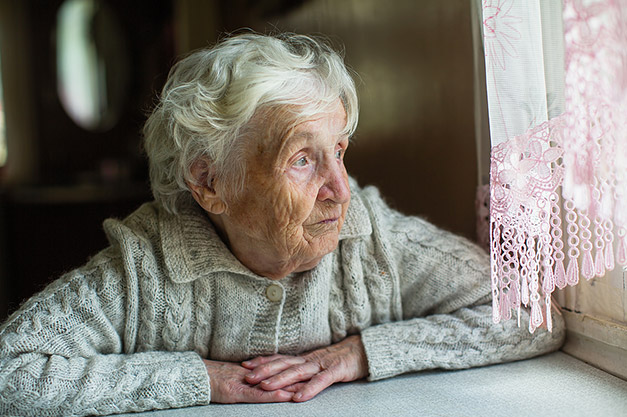Sep 14,2020

There has been a lot of focus lately on the negative effects of social isolation on seniors in oursociety. As we age or are living with a health condition, it becomes difficult to continue our personal connections and activities and we become vulnerable to isolation. Researchers have acknowledged that social isolation leads to negative health problems such as cognitive decline, depression, stroke, heart disease and premature death.
But there are ways to help those facing social isolation. Here is a deeper look at the risks for social isolation and some of the proactive steps caregivers and advocates can take to make life better for both the individuals in need of care and the people who spend their days caring for them.
Much of the focus and data about social isolation concentrates on individuals who are at high risk and living at home alone or with a caregiver. They may have experienced a life-altering event, such as the loss of a spouse or friend. Perhaps they are limited by hearing or vision loss, mobility or cognitive impairments, illness or disease. Despite the risks, many seniors want to stay in their homes for as long as possible, so identifying those at risk and providing services to ensure their social and health needs are being met takes an interdisciplinary approach.
Physicians and hospitals need to identify at-risk elders and have professionals within their network evaluate their in-home care needs. Visiting nurse associations, adult day care programs, non-medical home care agencies, aging-in-place contractors, Meals on Wheels, transportation resources and referrals to their local Area Agency on Aging are all important referrals for at-home elders.
Primary caregivers are also vulnerable to social isolation. Caregivers put their lives on hold and their wellness in jeopardy in order to manage the often-overwhelming task of caring for an ill loved one.
The AARP foundation defines isolation as more than being alone — it’s the result of feeling detached physically or psychologically, or being disconnected from support groups of family, friends and community. AARP estimates that more than 8 million adults age 50 and older are affected by isolation. A portion of that community includes people in their 50s and 60s caring for their parents, or spouses caring for a partner in need.
For a primary caregiver, it may be necessary to develop a new social network with others who are dealing with similar experiences. This can include organized groups like caregiver support groups, Memory Café participation or consulting an accessible group travel specialist. These are great ways to build new friendships and a dependable support system.
Our concept, Elder-Well Adult Day Program, is the first socially-supportive adult day franchise and joins a growing group of adult day services that offer a safe haven for seniors looking for community and much-needed respite for caregivers.
Fortunately, legislation is acknowledging the need for developing interventions and increase funding of services to combat social isolation, both for family caregivers and those in need of care services. The recent re-authorization of The Older Americans Act with the RAISE family caregivers act of 2017 and the Dignity in Aging Act of 2019 both develop strategies to provide greater support for family caregivers and evaluate solutions to address social isolation in our rapidly growing aging population.
AARP, as an affiliate of the World Health Organization, is working with states to develop Age-Friendly states and communities. These communities strive to better meet the needs of residents as they grow older, including access to public transportation, appropriate housing and community health and support services.
Dementia Friends USA is promoting the initiative “Dementia Friendly America,” which informs communities about dementia and how to create a safe and respectful atmosphere for individuals with the disease and their caregivers.
All the above-mentioned services and initiatives are a positive step in allowing aging adults to remaining living in their homes and communities independently.
Feel free to contact us with any questions regarding our services or to schedule a visit.